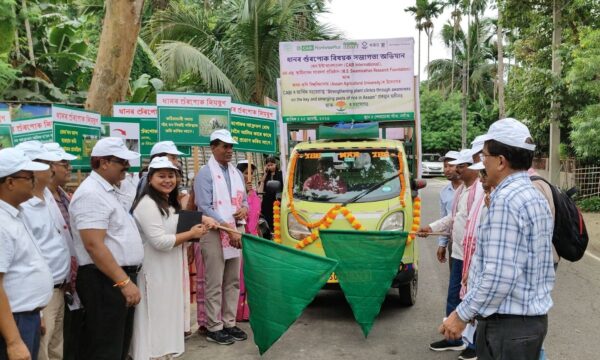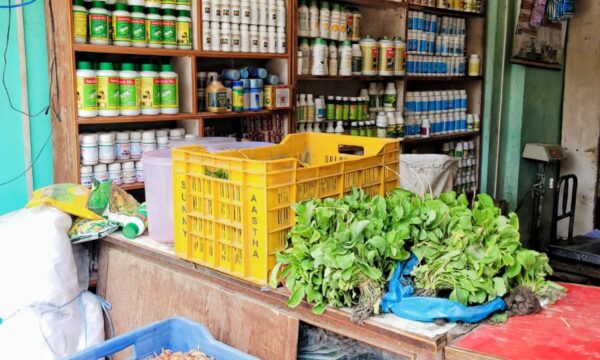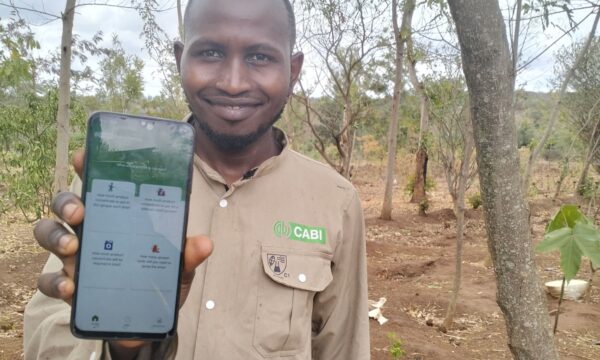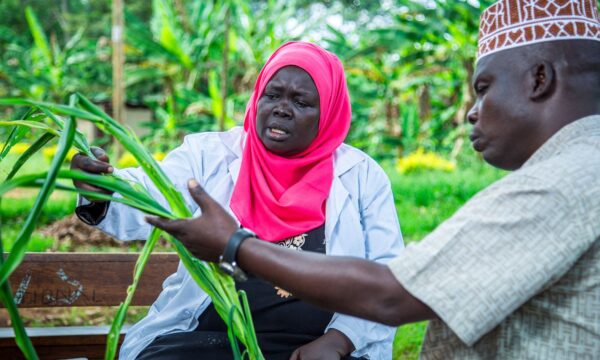When women play a greater role in agriculture, food security improves, and entire communities benefit. Yet, despite comprising around 43% of the rural agricultural workforce, women often face significant barriers to accessing the agricultural services they need to thrive. This includes advisory services, such as plant clinics, which support farmers in managing pests and diseases effectively and sustainably.
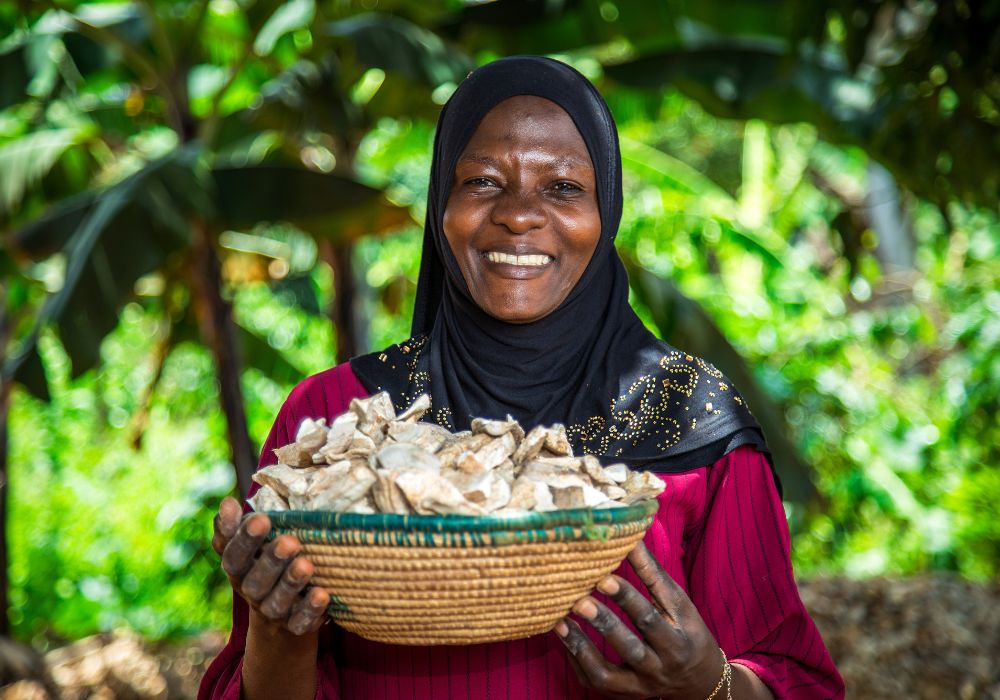
A recent PlantwisePlus study, Women Farmers’ Experiences with Plant Clinics: The Case of Tororo District, Uganda, examines the experiences of women farmers in accessing plant clinics. As part of the study, women farmers shared the obstacles they face in attending plant clinics and interacting with plant doctors.
What is a plant clinic?
A plant clinic is a community-based service that provides farmers with practical, science-based advice. Farmers bring samples of diseased or infested crops to the clinic, and trained extension workers share diagnostic and management advice.
Research shows that plant clinics improve women’s access to extension services. They play an important role in helping women and men farmers address plant health problems, increase productivity and reduce food insecurity.
Women and plant clinics: the challenges
The women farmers interviewed for the study discussed their experiences with and access to plant clinics. While many recognize the benefits that visiting plant clinics can bring, they face various challenges in accessing these services. Some of the key barriers include:
- Distance as a barrier: For many women, long distances to clinic sites and transport costs prevent them from visiting clinics. As one farmer explained, “It is very far and I have a sick leg, which makes it difficult to walk. Sometimes I miss out due to the long distance. Sometimes I have to get a boda boda, and during the rainy season, water blocks the road, and it is difficult to cross through“.
- Home responsibilities: Women shoulder the burden of household work, including childcare, cooking and cleaning. After taking care of the home, many of the women are either too tired or have no time left to attend plant clinics.
- Timings: While men often have flexibility in their schedules, most women can attend plant clinics only after finishing their work in the garden and at home. Unfortunately for Tororo’s women farmers, clinic sessions run from 9:00 a.m. to 1:00 p.m., when they are at their busiest.
- Language: Language, too, can be a barrier. Some plant doctors provide advice in English, a challenge for some participants. “I have not gone to school, and my English is not good. So, I don’t understand some things.“, one farmer explained.
- Technical terms: Advice often includes technical terms unfamiliar to the farmers, making it hard for them to implement pest management advice.
- Not taking samples: Not all farmers bring samples to a plant clinic. Women farmers often hesitate to remove plants, fearing they will lose their crops. But this can lead to the whole garden becoming infested. As one agricultural officer observed, “The women take it for granted whether it’s an infection/disease. To them, they don’t see much effects early but at the end the crops do not do well.“.
- Male plant doctors: All the plant doctors in Tororo are men. While advice is usually the same for everyone, some women feel they receive different guidance. This focuses more on cultural pest control methods rather than pesticides, which are more expensive.
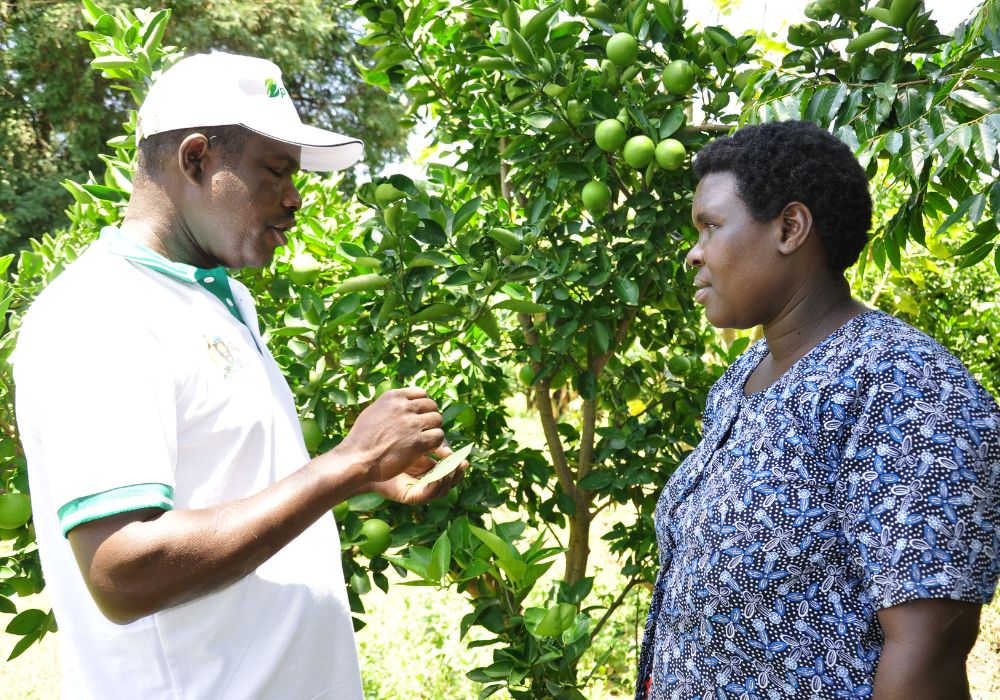
Why women’s access to plant clinics matters
However, despite these challenges, women farmers who attend plant clinics report a wide range of benefits that go beyond pest diagnosis. They are enthusiastic about the benefits of the services received and actively implement the advice given by plant doctors. These clinics equip women with practical knowledge and hands-on skills that enhance crop management and improve household well-being.
Women farmers who attend clinics strengthen their pest‑management skills, learning to identify and address problems early on. “I get increased yields on maize when there is enough rainfall. I also harvested a lot of bananas in the first season by following the advice of plant doctors,” one farmer reported. These new practices lead to healthier crops and better harvests.
Women also gain crucial knowledge about safe pesticide use, selecting the right products, measuring dosages correctly, and using protective gear to reduce health risks. Beyond chemicals, clinics train them in non-chemical methods, such as intercropping, crop rotation, and improving soil fertility. These techniques are often more affordable and sustainable for low-income households.
With such positive outcomes, many women are encouraged to return regularly to plant clinics. This helps reinforce a cycle of learning, application, and improved results on their farms.
Adapting plant clinics to be more inclusive
PlantwisePlus is addressing these barriers to reduce the gender gap in access to plant health advisory services and agricultural productivity.
- Mobile or satellite clinics: Bringing clinics closer to women’s homes or holding them at markets or community centres that women frequent.
- Women plant doctors: Recruiting and training female plant doctors encourages more women to seek advice and ask questions freely.
- Gender-sensitive training: Plant doctors are being trained to accommodate the specific needs of women farmers and create safe spaces for interaction.
- Flexible timing and formats: Clinics scheduled at times that work better for women improve participation.
- Women-only clinics or sessions: Offering gender-specific sessions ensures cultural sensitivity while maintaining access to vital information.
These steps help ensure that plant clinics serve women as effectively as they serve men. As a result, more women farmers can experience the full benefits that plant clinics have to offer.
Breaking down the barriers that prevent women from accessing these services is not just a gender issue; it’s an investment in food security and economic development. When women grow stronger crops, they also grow stronger communities. Making plant clinics work for women is a step toward a more inclusive and resilient agricultural future.
Further reading
PlantwisePlus gratefully acknowledges the financial support of the Directorate-General for International Cooperation, Netherlands (DGIS); European Commission Directorate General for International Partnerships (INTPA); UK International Development from the UK government; and the Swiss Agency for Development and Cooperation (SDC) for the PlantwisePlus programme.
Related News & Blogs
PlantwisePlus develops agro-input dealer training scheme with Bangladesh government
Pest outbreaks in Bangladesh are causing a rapid increase in the sale of pesticides. Farmers are turning to chemical products such as fungicides, herbicides and insecticides to manage pests, which they often buy from their local agro-input dealer. Howe…
22 January 2026

